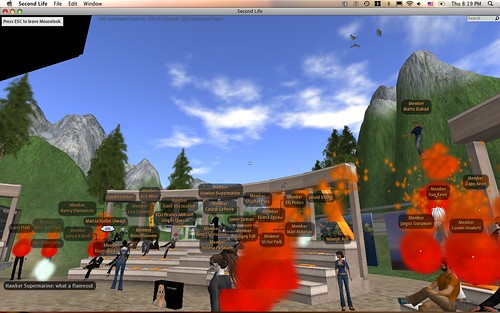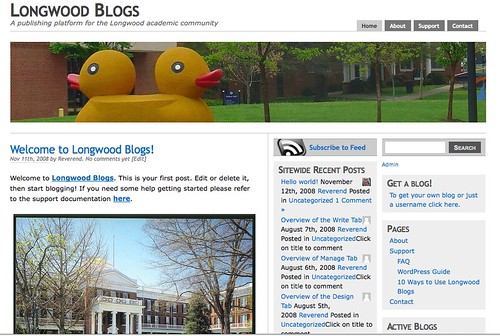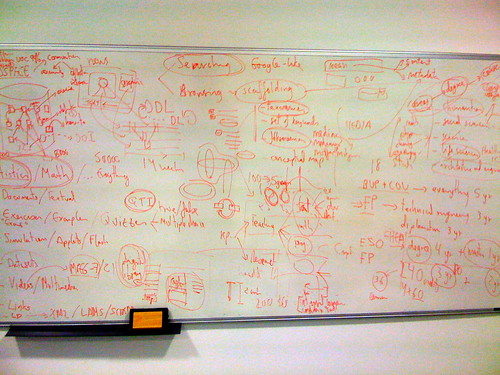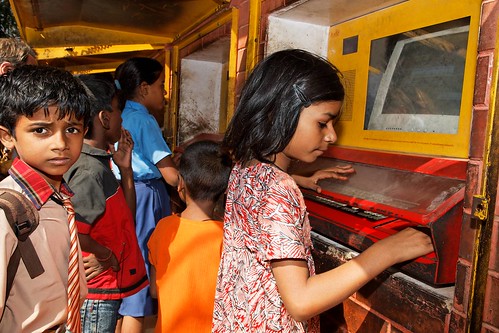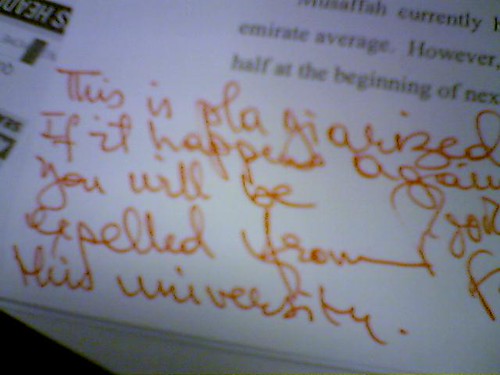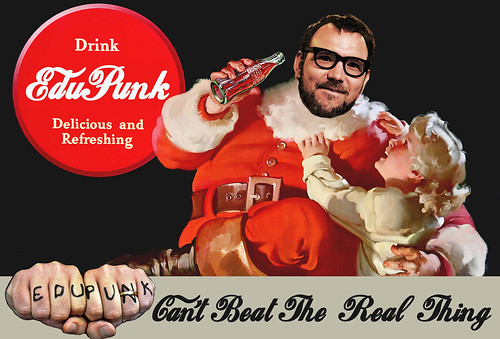
Jim "I’ve got your children" Groom – Edupunk Posterboy, originally uploaded by bionicteaching.
Three recent triumphs by everybody’s favorite edupunker Jim Groom that merit some shout-outs:
I was on an airplane when the recent NMC Online Conference in Second Life session with Jim and Tom Woodward went down, and while I feel very fortunate to be here in Barca, I will always regret having missed out on this. The Revolution Will be Syndicated is a wonderful summary of where the work of personal toolsets and radical reuse stands right now, and it’s done with a sense of fun and inspiration that is simply awe-inspiring. Toward the end of the video, when Wish You Were Here (one of my all-time favorite songs) kicks in, and Jim and Tom open fire on the audience with their flamethrowers, and a voice pipes up “Jim Groom I LOVE YOU MAN!!”… I nearly wept tears of joy.
It’s tempting sometimes to get swept away with Jim’s anarchic nuclear-powered presence, or his wild symbolism and humour, and to forget just how seriously and intelligently he works through these issues. So it’s a real treat to hear Jim finally get to do a keynote at WordCampEd in DC. The richness and deep thinking on the subject rings clear, and the passion is unparalleled – as about ten people who were at the session have subsequently commented on their blogs or on Twitter: “now I know why they call him The Reverend.”
If you care about blogging in education, hell, if you care about education you must check out the slides and listen…
But in terms of a contribution to the broader culture of education, Jim may have made his most profound contribution to the field with a criminally under-recognized post entitled Cloning the UMW Blogs Empire. It’s been understood for some time that UMW Blogs is pretty much the gold standard when it comes to the establishment of a WP blogging system as an educational publishing platform and as the basis of a campus community. But there’s only one UMW Blogs, and only one Jim Groom, right? Well in this post Jim describes how “two years worth of iteration and development [has been] given to Longwood in less than an hour” by the full sharing of a toolset, configurations, customizations, and documentation.
In an era in which budgets are tight, and getting tighter, I cannot fathom how work like this isn’t banner news across the blogosphere.

